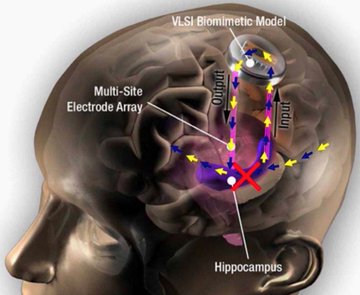 The measures, accuracy, scope and specificity of this ability would be interesting.
The measures, accuracy, scope and specificity of this ability would be interesting.Thanks For The Memories By Joe Dysart in CACM
Researchers have found a way to boost memory in the human brain by digitally recording memories through tiny electrodes, then reintroducing those memories back into the brain at a later time.
"This is the first time scientists have been able to identify a patient's own brain-cell code or pattern for memory and, in essence, 'write in' that code to make existing memory work better," says Robert Hampson, a professor of physiology and pharmacology at the Wake Forest School of Medicine of Wake Forest University in North Carolina, and a lead researcher on the study.
Using this method, researchers at Wake Forest, working with colleagues at the University of Southern California (USC), were able to boost memory by 35% in an initial test of their system, before boosting memory again by 37% in a second test.
"Memory is a complex process, and we are quite pleased with the success of the current system to improve human memory," says Sam A. Deadwyler, a professor of physiology and pharmacology at Wake Forest and a lead researcher on the study. "It is clear that we need to continue the evolution of the techniques utilized in our prosthetic system, and to extend our understanding of how to most effectively apply these principles for restoring memory function." ... '
No comments:
Post a Comment